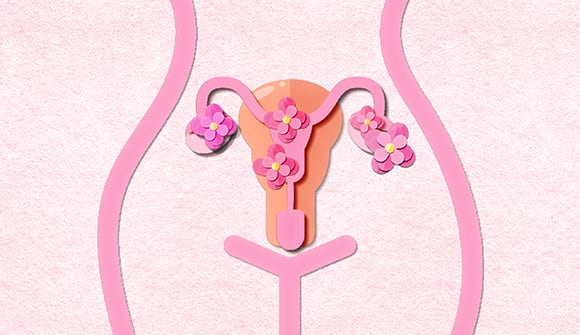Expecting at advanced age
What pregnant women 35+ need to know.
Article Date:

As if you didn’t have enough to worry about being pregnant during COVID-19, you've also learned you're considered of advanced maternal age (AMA) because you’ve reached age 35, or will have by the time you deliver. You may have even heard the terms “high-risk” or “geriatric” – yikes!
“The older you are, the greater the chance of pregnancy complications, such as chromosomal disorders like Down syndrome, pregnancy loss or stillbirth,” said Dawn Mormak, MD, an obstetrician and gynecologist (OB/GYN). “Also, as women age, there’s a greater chance of other medical conditions that may also affect pregnancy such as high blood pressure or diabetes.”
Fortunately, even if you’re automatically in this high-risk category due to your age, you can still have a normal, healthy pregnancy.
Checks and tests
Some screenings can provide you with your risk of chromosomal problems.
“Noninvasive prenatal testing (NIPT), which is done by drawing blood from the expectant mother, can also reveal the gender of the baby and identify a potential sex chromosome disorder,” Dr. Mormak said.
There are also options for diagnostic tests, such as chorionic villus sampling (CVS) or amniocentesis, which provide a picture of the chromosomes. Unlike screenings, which reveal the likelihood the fetus has a condition, these tests provide definitive diagnoses.
“The chance for obstetric complications such as fetal growth restriction, preeclampsia, preterm birth, gestational diabetes or cesarean delivery also increases with age,” Dr. Mormak said.
In addition to deciding on screening or diagnostic testing for chromosome disorders, more frequent ultrasounds to monitor fetal growth are often recommended.
“Sometimes fetal testing is advised during the last month of pregnancy, which requires weekly appointments,” Dr. Mormak said.
Delivering at a hospital with a Neonatal Intensive Care Unit (NICU) can offer you peace of mind knowing specialized newborn care is immediately available, if necessary. Both Baptist Medical Center Jacksonville and Baptist Medical Center South have on-site Wolfson Children’s Hospital NICUs.
Preconception questions
If you’re worried about a future pregnancy, Dr. Mormak suggested scheduling a preconception counseling visit with your OB/GYN.
“This is a great time to review medications, medical and family histories and vaccinations. We can identify potential issues in a future pregnancy and allow time to optimally control any medical conditions prior to conceiving. This also lets us remind women of environmental hazards, to abstain from smoking and drinking, and to start taking prenatal vitamins.”
Looking for expert care throughout your pregnancy? Call 904.202.4HER (4437) to find a provider who specializes in high-risk pregnancies. To learn more about Baptist Health's Labor & Delivery services, visit baptistjax.com/baby.



